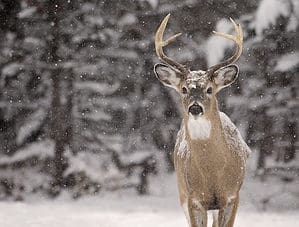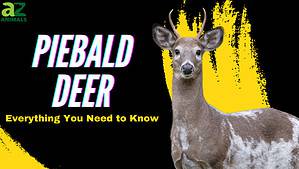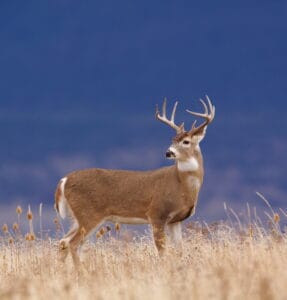Hunting season in Maine brings with it the expectancy of catching a few big games. And with this expectancy and participation comes the need to be well-equipped with the laws governing the hunting season. In this article, we will discover when the deer season opens, license requirements, and regulations in Maine.
When Is Deer Season Open in Maine?
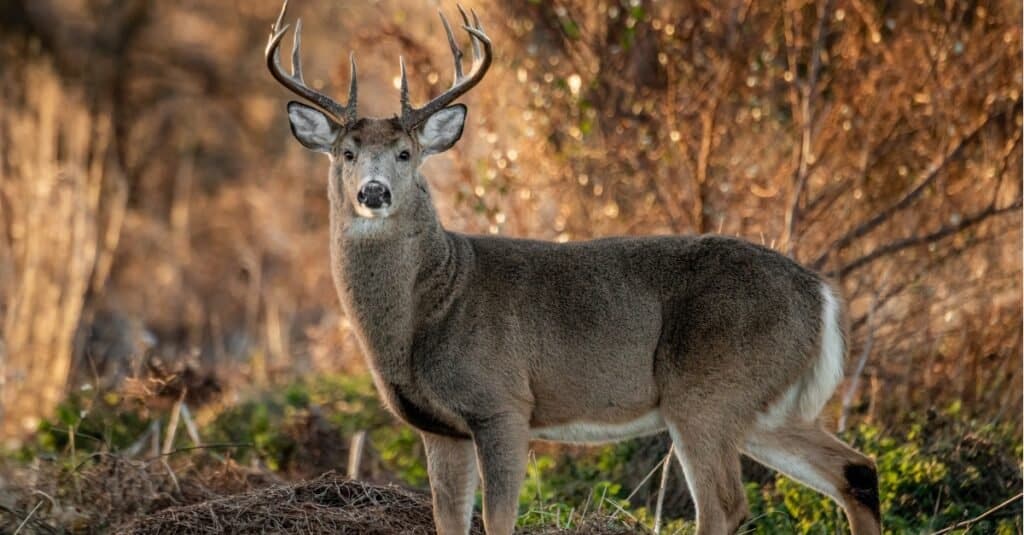
The white-tailed deer has a more red tint to it in the warmer months.
©iStock.com/Harry Collins
Several different seasons in Maine are all open at different times. Expanded Archery season occurs the longest, between September and December in most cases, and the regular Archery season only occurs through October.
The Firearms season only occurs on very specific dates through October and November. There are resident-only dates and “all hunter” dates.
There is also a single day for youth hunting. This day usually falls in October, though the exact date will vary yearly.
Muzzleloader season occurs later in November and December. There are often two weeks for this season, and the exact date can vary from area to area.
When you hunt, you may only take a single deer annually. Therefore, most hunters select a singular.
Hunting License Requirements
Anyone who wants to hunt any animal in Maine needs a hunting license. You do not need a license for deer hunting, only a generalized “hunting” license. The type of license you need will vary, depending on your age, residency, and similar considerations.
For hunting deer, you will also need a permit in most cases. These permits are purchased separately and depend on the season you plan on hunting in.
Only those planning to carry hunting equipment (to kill the deer) must have a license. Anyone may join in the hunt and assist, as long as they do not plan on killing the deer.
Anyone under the age of 16 needs a junior license. After the age of 16, an adult license is required. The only exception is those that turn 16 during the season; their junior license is fine throughout the rest of the season.
Special Licenses
Several special licenses can be obtained under special circumstances.
Any military member stationed in Maine can get a resident permit and their spouse and dependents. Any Maine resident stationed outside of Maine may purchase a resident license at a discounted price.
Exchange students currently living in Maine may purchase a resident license. Nonresident college studies can also obtain a resident license, even if their residency is technically elsewhere.
Several people may be eligible for a complimentary license. Disabled veterans can apply for a free license if they have a service-related disability of more than 50%. Furthermore, these veterans can also receive free permits. However, they must still apply for antlerless and moose permits yearly.
Native Americans can receive one free lifetime license if they belong to certain nations or tribes. Proof of being an enrolled member is required to receive the license.
License Requirements
The license requirements differ depending on the type of license you’re receiving. For a Firearms license, you must complete a hunter safety course if born after 1976. There are many approved courses provided by other states, as well.
The course is usually held online and is referred to as the “outdoor safety course,” as it works for many license types. Traditional in-person classes may be available in some areas. An exam session is required for any student between the ages of 10-15 who would like a firearm or bowhunting license.
The only exception to this is the apprentice hunter license. Unlike other states, any resident or nonresident 16 years or older can purchase this license. However, it may not be purchased more than five times. With this license, the person must be supervised by someone who is at least 18 and has had a valid hunting license for three years.
The supervising hunter must ensure that the apprentice hunter follows all hunting protocols and laws.
There are also additional requirements for certain license types:
- Firearms License: You must complete a safety course or show proof that you originally had an adult license.
- Archery License: You must complete a safety program or show proof that you previously held an adult license.
- Crossbow Permits: You must complete an archery hunting education program or a firearms hunting safety course. Furthermore, you must also complete a crossbow hunting education program. You may take these courses in any order. Alternatively, you can show that you previously held a crossbow permit.
Antlerless Deer Permits
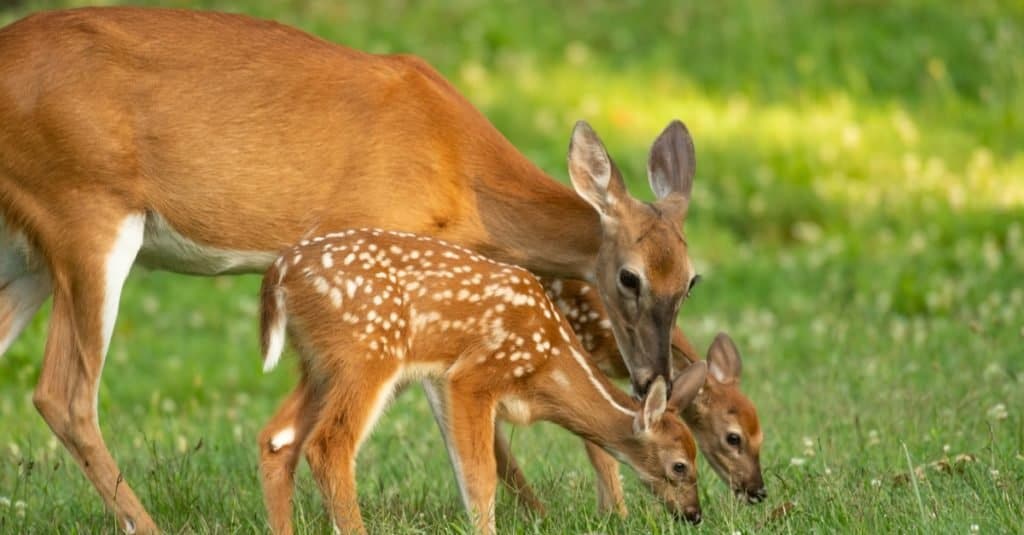
You do not need an antlerless deer permit during some seasons.
©Tony Campbell/Shutterstock.com
During any season, you may take one either-sex deer. However, you may only take one antlered deer if you are hunting during muzzleloader or firearms season.
To hunt more deer, you must purchase a valid antlerless deer permit. You can purchase these individually or in packs; each permit allows one antlerless deer to be taken. You can also acquire them via lottery in some areas.
You do not need an antlerless deer permit during some seasons. For instance, the expanded archery season allows you to take one deer of either sex without the purchase of any permit. Extra deer will require the purchase of a permit, though.
Deer Season Types
There are several types of deer hunting seasons in Maine. Each one is open in a certain area and requires the use of a specific weapon.
Regular Archery and Crossbow
During this season, you may only utilize archery equipment or a crossbow (assuming you have the correct permit). The state has special requirements for hunting with a crossbow, so be sure to purchase a permit specifically for the crossbow if you wish to hunt with one.
The only exception is anyone aged 65 or older, who may use a crossbow at any time.
During this season, you may harvest one deer of either type without a special permit. However, that is one deer in total.
Usually, this season is open throughout October, and it may overlap with the firearm season. However, you may also use archery equipment during the firearm season.
All archery equipment must have a draw weight of at least 35 pounds and broadhead arrows. Arrowheads must be at least 7/8 inches in width. You may not use arrows with poisonous tips or explosive charges.
Hunter orange clothing isn’t required during this season. However, the deer must be inspected to determine the killing method at the first open registration station during the season.
This season requires hunting between 1/2 hour after sunrise and 1/2 hour after sunset.
Extended Archery Season
In some areas, you may be able to hunt deer for longer when using archery equipment. Usually, this season starts before the regular archery season. However, it is not open to everyone.
During this season, crossbows may only be used by those with disabilities or anyone aged 65 or older. Regular crossbow permits do not apply.
If you hold a valid archery license, you can purchase multiple expanded archery antlerless deer permits and one either-sex permit for use during this period.
Deer registration and transport laws are the same as in other seasons, and all regular archery deer hunting laws are required.
Junior hunters can hunt during this season. Their license includes one either-sex permit. If you want to take more deer, you may purchase antlerless deer permits as needed.
Firearms
The firearms season doesn’t only allow firearms like other states. Instead, you can hunt with bows, crossbows, firearms, and muzzleloaders. You must simply have a license for the hunting equipment you have.
There is often a resident-only day at the beginning of the season. Then, the season is open for all hunters for about a month.
You must not hunt with cartridges that contain tracer bullets or explosives. You can hunt with a silencer if you are legally allowed to own the silencer.
Hunter orange must be worn during this season, even if you’re not hunting with a firearm. You must wear two different articles of hunter-orange clothing. One of these items must be a hunter-orange hat. The other must cover a major portion of your torso. Camouflage hunter orange is allowed.
Youth Deer Hunting Day
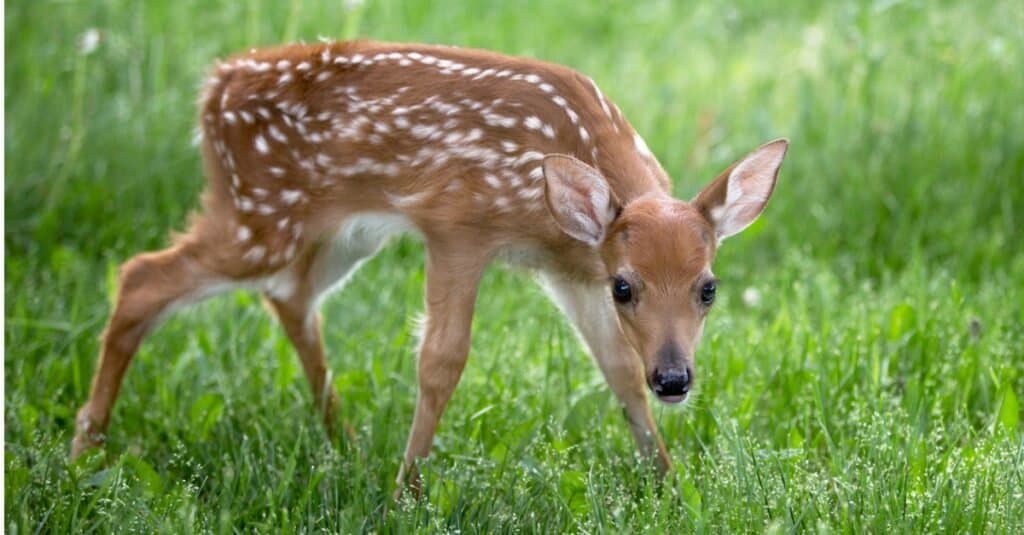
Sunday hunting is illegal in Maine.
©iStock.com/Lynn_Bystrom
There is a singular day when only youth are allowed to hunt. “Youth” is defined as anyone under 16 who has a youth permit. During this season, youth may take one deer of either sex.
This day is one of the few where antlerless deer can be taken without a permit.
Muzzleloader Season
There are two weeks solely for muzzleloaders later in the season. These weapons are only capable of being loaded through the muzzle. They must also be ignited with a matchlock, flintlock, caplock, or wheel lock. They must also fire only a single charge. However, they can have any type of sight, including scopes.
There are some newer muzzleloaders on the market. Usually, these have pre-loaded gunpowder encapsulated and not loaded through the muzzle. The bullet is still loaded through the front end of the gun. These guns still meet the muzzleloader definition for hunting purposes.
To operate one of these guns, the hunter will need a license and a permit for this weapon. However, this permit is included in the junior hunting license and a senior lifetime license.
Wearing hunter orange is required during this season. The same guidelines apply as in the Firearm season. All other firearms laws are also at play, so be sure to review those.
On top of muzzleloaders, those with special permits to hunt with a crossbow due to a disability or advanced age can also hunt with them during this season.
Regulations and Safety Information
On top of the specific regulations during each season, some general regulations must be kept in mind. These apply during most hunting seasons, though some of them are deer-specific:
- Sunday hunting is illegal in Maine. This means pursuing, catching, harvesting, or killing any wild animal.
- All hunting must take place 1/2 before sunrise and end 1/2 after sunset.
- The hunter must take clear steps to identify the target before shooting. The hunter should not risk the life of another due to misidentification or take the wrong animal due to identification. This identification must be made with an “unobstructed view of the target’s head and torso.”
- A license is available to track wounded deer with dogs. However, you must never hunt wild deer with dogs. The dog must also stay leashed at all times. You may charge a fee for the dog’s services without having a guide’s license.
- Deer baiting is not allowed between June 1 and December 15. However, this doesn’t apply to a stand overlooking crops, foods resulting from normal agricultural operations, and bear baiting.
- Deer cannot be hunted with traps, airbows, set guns, snares, lights, and .17 or .22 caliber cartridges.
- You cannot hunt deer when there is a planned effort to drive deer.
- It is unlawful to hunt for a second deer after taking one. Of course, the exceptions for this are having an antlerless deer permit or during expanded archery season.
- If someone is harmed during hunting, the hunter must make themselves known to the victim and anyone rendering aid. The hunter must ensure that the incident is reported and that help for the victim is sought.
- It is unlawful to harass a hunter while they are legally hunting, and this includes disturbing prey. This law does not limit property rights, however.
Chronic Wasting Disease in Maine
Chronic Wasting Disease is a virus that affects the brain of white-tailed deer, mule deer, caribou, moose, and elk. It is similar to mad cow disease, though it occurs in different animals. This condition is 100% fatal in animals. Once the animal dies, the disease can hang around in the soil for many years.
Luckily, this disease does not currently infect people. However, there are worries that it may happen in the future.
Currently, CWD has not been detected in Maine. However, it has been detected in very close states. Therefore, Maine is currently actively monitoring the disease and has regulations to prevent transmitting it.
It is illegal to transport the parts of deer and similar species into Maine from another state. Some exceptions, however, include boned-out meat, hardened antlers, skull caps that have been professionally cleaned, and similarly cleaned pieces. Taxidermy mounts and deboned meat is often fine, but whole carcasses are not.
The only exception is parts or carcasses from New Hampshire, which can be brought into the state.
Live deer can also not be transplanted from other states into Maine.
You must contact a wildlife biologist or warden if you notice a deer acting ill. Common symptoms include loss of fear, drooling, and excessive weight loss. The animal is often described as not acting right, as it will lose brain function as the disease progresses.
Take precautions when harvesting the deer, such as wearing latex gloves. While this disease doesn’t currently infect people, the more contact it has with people, the more likely it is to jump species.
Do not eat a deer’s brain or spinal tissues, as this is where the virus resides. You should not use urine-based lures, as urine can spread CWD.
You are not allowed to “waste” an animal that has been injured. A reasonable effort must be made to retrieve the animal for consumption or other use. This ensures that an infected deer won’t be left around to infect others.
What To Do After a Deer is Harvested
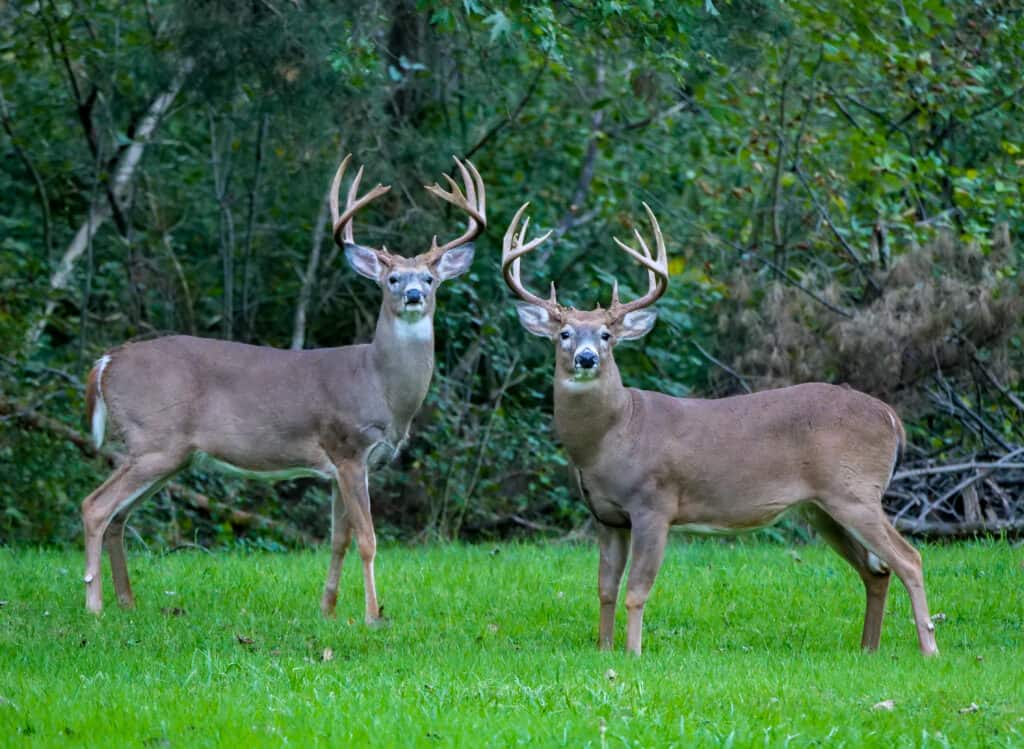
It is illegal to transport the parts of deer and similar species into Maine from another state.
©iStock.com/Ralph Navarro
After you legally take a deer, the rest is pretty straightforward in Maine. You must make a reasonable effort to take the deer for consumption or other use. It is illegal to “waste” an animal.
You must not leave the deer in the field or forest unless you have attached your tag to the deer. You can also not possess the deer unless it has this tag attached. Therefore, your first step should be to attach this tag to the animal. It should include your name, address, and license number.
Once you have lawfully killed any animal, you need to register it. You can transport the animal before you have registered it. However, the animal must have the tag attached and be transported in clear view. You cannot try to conceal it, and you must be the one transporting the animal. After registration, the animal can be transported by anyone.
To register the deer, proceed to your route’s first open registration station. The deer will be given a registration seal, which must remain attached until the animal is processed. There is a $5 fee to register a deer.
You must register a deer within 18 hours of killing it. There are some cases where you can get around this limit. However, you must notify a game warden within 18 hours and request an extension.
If you are staying in the woods at a temporary lodging (such as a hunting cabin), you may keep the deer there until you leave the woods. However, you must not keep it there for more than 7 days.
You should not possess any animal that was not registered. However, there is an exception regarding animals causing damage (though this rarely applies to deer).
Before being registered, you may field dress a deer for easy transport. However, edible meat, the head, and evidence of sex must be presented at registration. The other items can be disposed of, but they should be disposed of somewhere not visible to the general public. (In other words, you can’t leave a carcass on the side of the road.)
It is also illegal to gift an animal until it has been registered. A gifted animal should keep a tag on it with the name and address of the person who registered it. Of course, processed meat does not fall into this category.
Fines for Not Following Regulations
Any person who violates a law that regulates hunting has committed a civil violation. The fine is no less than $100 and no more than $500 unless in specific circumstances.
For instance, hunting during a close season has a fine of no less than $1000. Furthermore, hunting a deer out of season requires at least 3 days of sentencing for the first offense (none of which may be suspended). The second offense carries a 10-day sentencing minimum.
Someone not wearing orange clothing as required is required to pay a fine of no less than $100. However, committing this multiple times brings about higher fines.
The photo featured at the top of this post is © iStock.com/Dan Richards
Sources
- Maine Department of Inland Fisheries and Wildlife, Available here: https://www.maine.gov/ifw/hunting-trapping/hunting/laws-rules/general-laws.html
- Maine Department of Inland Fisheries and Wildlife, Available here: https://www.maine.gov/ifw/hunting-trapping/hunting/laws-rules/deer-hunting.html
- Maine Department of Inland Fisheries and Wildlife, Available here: https://www.maine.gov/ifw/hunting-trapping/hunting/laws-rules/tagging-transportation-registration.html
- Maine State Legislature, Available here: https://legislature.maine.gov/statutes/12/title12sec11201.html
- Maine State Legislature, Available here: https://legislature.maine.gov/statutes/12/title12sec10802.html
Thank you for reading! Have some feedback for us? Contact the AZ Animals editorial team.



